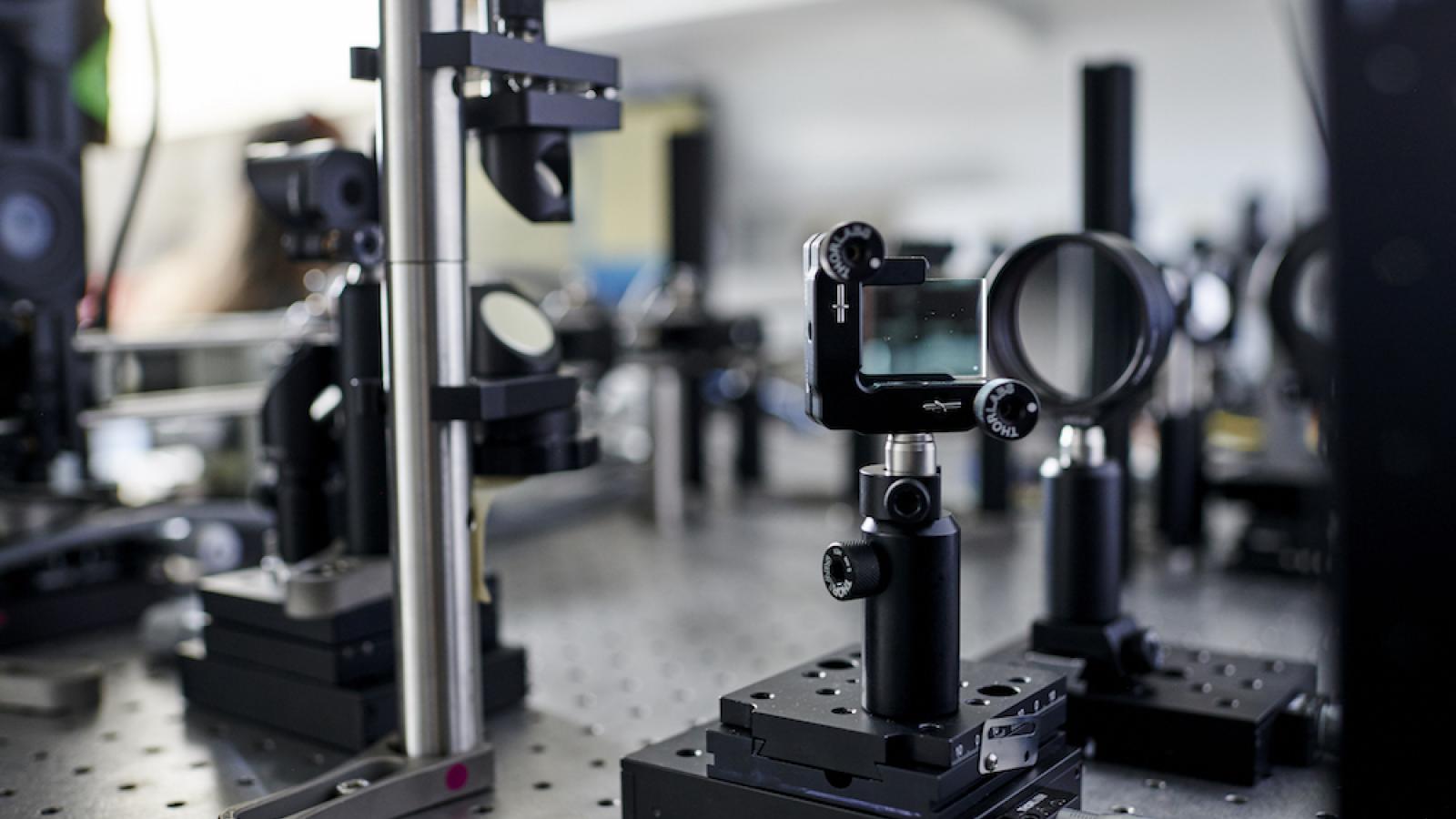With each passing decade, we are discovering more about the diseases that present immense health challenges to our society. Although brilliant ideas and people are core to these developments, the advancement of technology has played a major role and allowed us to drill down into the complexities that surround these conditions. To take full advantage of these tools, a co-ordinated approach is required to ensure all researchers have access to the equipment and expertise they need. We caught up with Dr Sam Jackson, Tools and Technology Platform Manager at UK DRI, to find out more about how technology will form a key component of the institute’s strategy going forward.

with Dr Sam Jackson
(Tools and Technology Platform Manager, UK DRI HQ)
Hi Sam, can you tell us about your background and why you joined the institute?
My background is in neurodegenerative disease research, particularly multiple sclerosis and Alzheimer’s disease. Since childhood I have taken things apart ‘to see how they work’ (they generally never did again), and this has developed into an interest in the application of technology to solve biological problems.
The UK DRI appealed to me as I believe there is great power in bringing together experts from traditionally separate disciplines such as chemistry, physics, engineering and informatics to drive research development. The institute is pushing the envelope in dementia research and has created an environment where the impact of cutting-edge technology can be maximised through the work of a world-leading base of researchers.
You are working in the newly created role of Tools and Technology Platform Manager in UK DRI HQ. Why is this role necessary and what do you hope to achieve?
One of the main challenges facing an institute distributed across seven centres is bringing together researchers to tackle common goals. We hope to achieve this through our development of ‘Technology Platforms’ and ‘Tools’.
We have dedicated funding to the set-up and support of technology platforms which will provide our researchers with access to the latest state-of-the-art technology. The diseases that cause dementia are so complex and cutting-edge technology will help us overcome the barriers to understanding them.
Additionally, our researchers are creating a wide range of tools such as patient-derived cells, research antibodies and pieces of code to enable the modelling of disease and to test potential treatments. We want to help researchers develop and share these tools, driving collaborative and open-access research. This is not only limited to UK DRI researchers as we hope these resources will have a positive impact on the wider research community.
What have been your first activities in the role and some of the challenges you have faced?
As I started the role in lockdown, one challenge has simply been in meeting my colleagues! This has been somewhat overcome through the power of Zoom, and I’ve been frequently captivated by the high level of quality and innovation taking place at UK DRI research labs through meetings and seminars.
One of my first tasks has been to map the technology resources already existing at the UK DRI centres, so that we can start to connect researchers using similar approaches and create distributed technology clusters. The newly-created UK DRI Portal is instrumental in this, as it allows researchers to search directly for technologies or expertise across our community.
Using this information, we have been able to identify strategic areas of focus and define which platforms would be most beneficial to drive forward discovery at the institute. The first Technology Platform to be developed will be proteomics involving the use of mass spectrometry.
Can you explain why proteomics has been highlighted as a priority area for the UK DRI and the activities planned for researchers?
Since the mapping of the human genome - a great example of where investment in DNA sequencing technology directly led to an important scientific breakthrough - scientists have had the ‘blueprint’ to human life. However, to translate this knowledge into the function or dysfunction of cells and systems, we need greater understanding of proteins.
Proteomics is defined as the large-scale study of proteins, carried out using a highly specialised and sensitive instrument called a mass spectrometer, which allows the accurate measurement and identification of many thousands of proteins. However, these instruments do require particular expertise to set-up, maintain and support experiments, so are largely found within centralised facilities. At the UK DRI, we want to provide new opportunities for our researchers to collaborate and work with expert proteomics labs in the UK. We’re working on finding the most appropriate partners for this with the aim of setting up a Proteomics Research Network enabling direct access to a range of mass-spectrometry based techniques.
To launch this stream of work, we held a cross-cutting workshop in November 2020 to introduce UK DRI researchers to relevant proteomics researchers and to a range of mass-spectrometry based proteomic techniques. At the meeting we launched a dedicated Proteomics Collaborative Seed Funding scheme to catalyse collaborations and provide a mechanism for researchers to engage with the techniques.
Can you give us an idea of future work you will be undertaking and how people can get in touch if they want to be involved or have any questions?
We will of course be looking to introduce new technology platforms to meet specific needs and draw on the strengths of our institute. So far, we’ve had interest in single cell multi-‘omics, advanced microscopy and biophysical techniques, gene editing and human cell and tissue-based modelling. We will also be examining how best to support translational research and increase the predictivity of preclinical data to patient populations.
I’m very happy to speak to anyone if they have questions about tools and technology, from UK DRI or beyond. I can be contacted by email (samuel.jackson@ukdri.ucl.ac.uk), or on Slack for UK DRI researchers.
Article published: 30 November 2020
